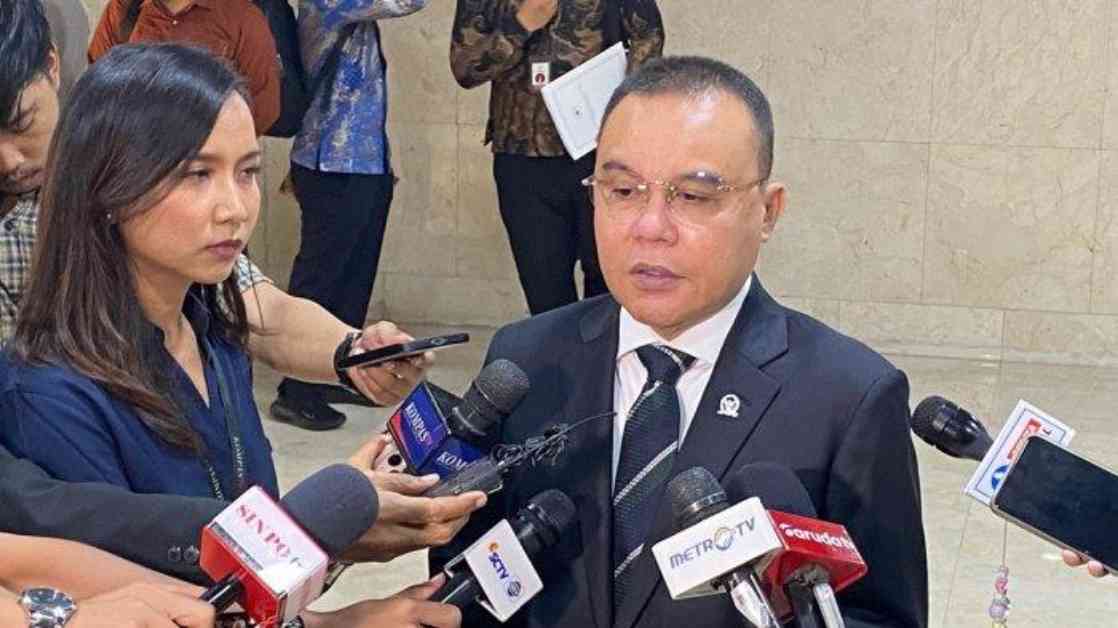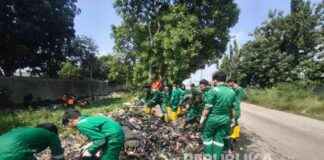In a recent turn of events, the impact of Dasco’s policy on the scarcity of 3 Kg LPG has sparked controversy and raised concerns among the Indonesian population. The Vice Chairman of the Indonesian House of Representatives, Sufmi Dasco Ahmad, has criticized Minister of Energy and Mineral Resources Bahlil Lahadalia for rushing into a decision that has resulted in a shortage of 3 Kg LPG gas in the community.
Dasco expressed his belief that the implementation of the ban on retailers selling 3 Kg LPG gas was hasty and lacked proper communication and preparation. He emphasized the importance of prior socialization to ensure a smooth transition and avoid disruptions in the supply chain. Dasco’s sentiments were shared during a press conference at the Presidential Palace in Jakarta on Tuesday, February 4, 2025.
The seasoned politician highlighted the unforeseen consequences of the sudden policy change, leading to the accumulation of demand for 3 Kg LPG gas among the public. Dasco also raised questions about whether Minister Bahlil had consulted with President Prabowo Subianto before enforcing the directive. He underscored that any decision that adversely affects the citizens would warrant the intervention of the President to rectify the situation.
### Expert Insights on the Policy Implementation
Moving forward, Dasco emphasized that President Prabowo had intervened to address the issue promptly by instructing the Ministry of Energy and Mineral Resources to lift the ban on retailers selling 3 Kg LPG gas. This swift action aimed to alleviate the shortage and restore normalcy in the distribution of subsidized gas to the public. The collaborative effort between the legislative and executive branches underscored the government’s commitment to resolving pressing issues that impact the welfare of the Indonesian people.
In response to Dasco’s criticism, Minister Bahlil Lahadalia defended the decision to prohibit retailers from selling 3 Kg LPG gas, stating that it was a well-considered policy that had undergone thorough evaluation over an extended period. Despite the initial challenges and public outcry, Bahlil stood by the necessity of the directive to regulate the distribution of 3 Kg LPG gas and prevent misuse of the subsidized resource.
### Public Outcry and the Human Impact
The aftermath of the policy change resulted in widespread shortages of 3 Kg LPG gas across communities, prompting long queues stretching hundreds of meters as residents waited to secure their share of the essential commodity. The scenes of desperation and inconvenience faced by individuals seeking access to affordable cooking gas underscored the significant impact of governmental decisions on the daily lives of ordinary citizens.
As the nation grappled with the repercussions of the 3 Kg LPG scarcity, the discourse surrounding regulatory policies and their implications on public welfare gained prominence in the public domain. The intersection of political decisions, economic considerations, and social consequences underscored the complexities of governance and the delicate balance required to safeguard the interests of all stakeholders.
In conclusion, the evolving narrative surrounding Dasco’s policy and its repercussions on 3 Kg LPG scarcity serves as a poignant reminder of the interconnectedness between governance, public welfare, and responsible decision-making in a dynamic society. The ongoing dialogue between policymakers, experts, and the general public reflects a collective endeavor to address challenges, foster transparency, and uphold the principles of good governance to build a better future for all Indonesians.














